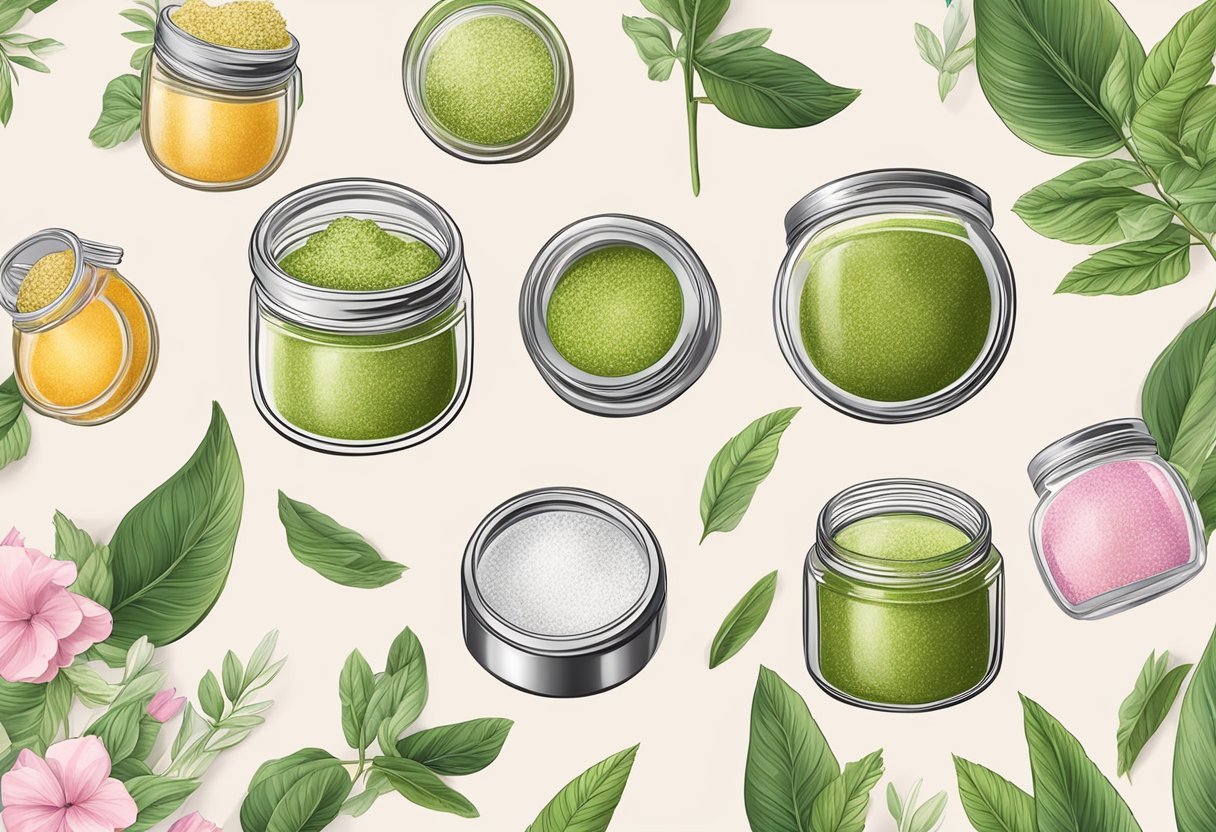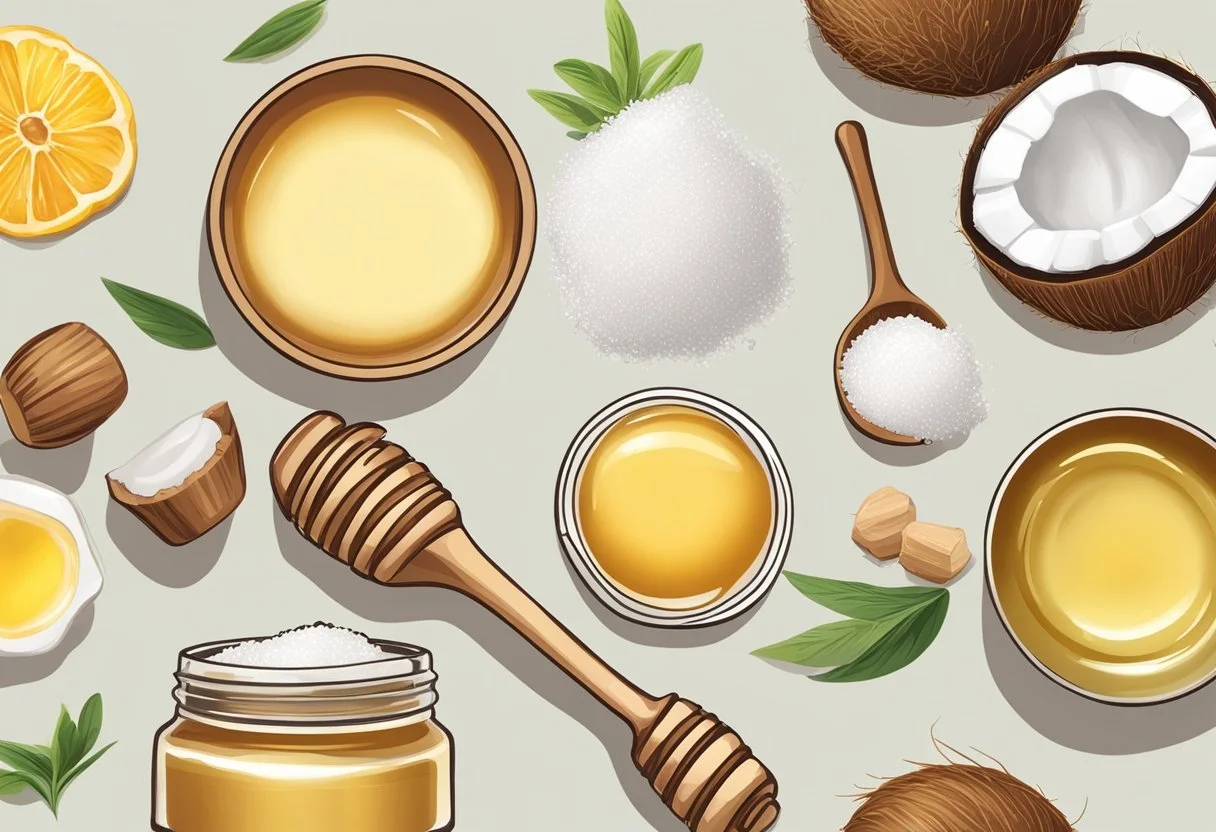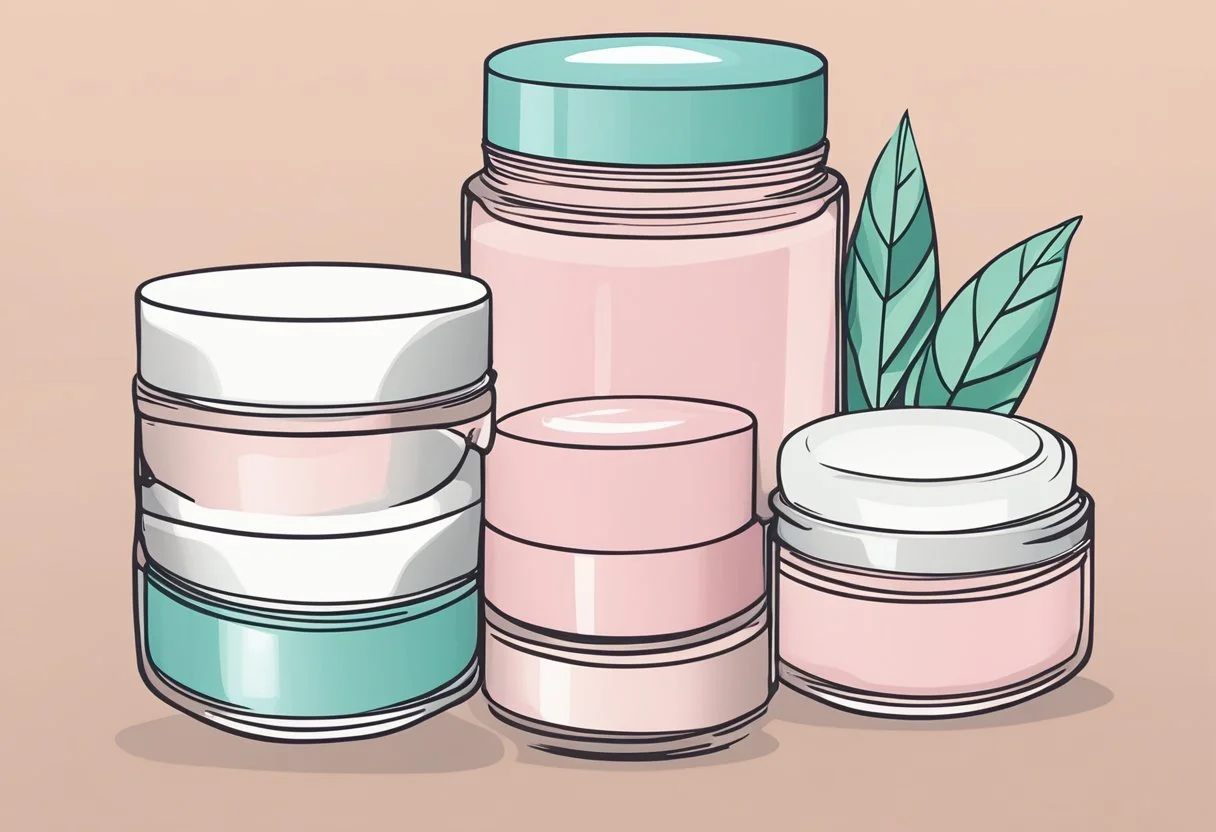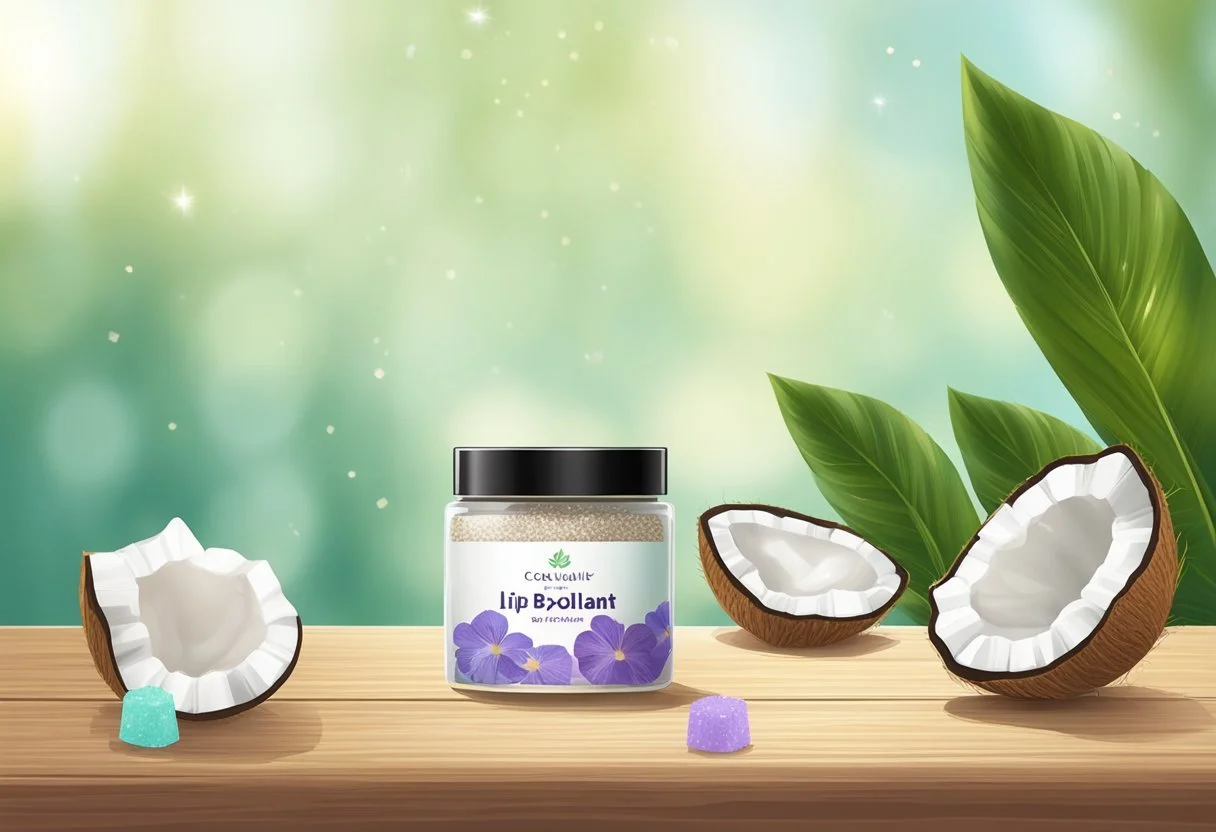Homemade Lip Exfoliant
Simple Steps for Smooth Lips
This article is part of our series on Natural Health
Discover > Natural Health > Homemade Lip Exfoliant
Taking care of one's lips is an essential aspect of maintaining healthy skin and overall beauty. One often overlooked component of lip care is regular exfoliation, which can be achieved through the use of a homemade lip exfoliant. With the right ingredients and a simple recipe, anyone can create their own lip exfoliant that is both effective and affordable.
A homemade lip exfoliant can work wonders in removing dead skin cells and uncovering soft, smooth lips while also improving lip color and texture. As many store-bought lip exfoliants can be expensive or contain unnecessary chemicals, making your own exfoliant at home enables you to have control over the ingredients and tailor the formula to suit your specific needs. Moreover, using natural and easily accessible ingredients is not only gentle on your lips but also eco-friendly and budget-conscious.
Incorporating a lip exfoliant into a regular skincare routine can yield impressive results, such as improved hydration and a reduced appearance of fine lines. Making your own lip exfoliant can be a fun and rewarding process, allowing for customization and experimentation with various ingredients – from sugar (how long does sugar last?) and honey (how long does honey last?) to essential oils – to achieve your desired lip care goals. Give it a try and your lips will surely thank you for this homemade treat.
Understanding Lip Exfoliation
Lip exfoliation is the process of removing dead skin cells from the surface of the lips. This can be beneficial for those experiencing dry, flaky, or peeling lips, since this dead skin can make them appear less smooth, healthy, and vibrant. Additionally, exfoliating the lips can help combat signs of aging as it promotes a more youthful and plump appearance.
To exfoliate the lips, an exfoliant is gently massaged over the lips in circular motions. This helps to dislodge and remove dead skin cells that may be causing dryness or irritation. It is important to select a suitable lip exfoliator to avoid causing damage or discomfort to the delicate lip tissue. Homemade lip exfoliants can be crafted using natural ingredients such as sugar, honey, and coconut oil.
Regular lip care by incorporating exfoliation into a skincare routine is a good practice. However, it is crucial not to overdo it. Over-exfoliating can lead to further irritation and increase the risk of peeling. A general guideline is to exfoliate the lips once or twice a week depending on their condition and individual needs.
In summary, lip exfoliation plays an important role in maintaining healthy, attractive lips. By selecting a gentle exfoliant and incorporating it into a weekly lip care routine, one can enjoy the benefits of smoother, more youthful-looking lips.
Why Homemade Lip Exfoliants
One main reason people choose homemade lip exfoliants is the level of control they have over the ingredients. Many store-bought lip scrubs contain chemicals and additives that may not be ideal for those seeking a more natural experience. DIY lip scrubs are typically made using all-natural ingredients, making them safer and more eco-friendly than commercial versions.
Another advantage of homemade lip scrubs is their cost-effectiveness. Purchasing a store-bought lip scrub can be pricey, especially when the ingredients used to create a DIY lip scrub recipe are often inexpensive and readily available in most kitchens. By making their own, individuals can save money without sacrificing quality in their beauty products.
Homemade lip exfoliants are easily customizable according to personal preferences or specific needs. For instance, if someone has sensitive skin, they can opt to use milder ingredients such as honey and brown sugar, whereas those who prefer a stronger exfoliation might use coarser options like coffee grounds or granulated sugar. Additionally, various essential oils can be added to enhance the aroma or provide additional benefits such as moisturization or soothing effects.
Lastly, creating homemade lip scrubs is a great way to reduce waste. Most commercially produced beauty products come in plastic containers that, if not recycled, contribute to environmental pollution. By making a DIY lip scrub, individuals can store their mixture in reusable containers, thus lessening their impact on the environment.
In summary, homemade lip exfoliants offer an all-natural, customizable, and eco-friendly alternative to store-bought lip scrubs. By opting for a DIY beauty product, individuals can truly be confident and knowledgeable in their skincare routine.
Key Ingredients for Homemade Lip Exfoliants
Homemade lip exfoliants can be made using a variety of natural ingredients to help remove dead skin cells and reveal softer, smoother lips. Some of the most commonly used ingredients include sugar, coconut oil, brown sugar, honey, and olive oil, which offer a combination of gentle exfoliation and moisture to your lips.
Sugar is a popular exfoliating ingredient, and you can choose between white sugar, brown sugar, or coconut sugar (how long does coconut sugar last?) depending on your preferences. Brown sugar is slightly gentler on sensitive skin, while white sugar and coconut sugar provide slightly more abrasive exfoliation. Mix sugar with a moisturizing agent like coconut oil or olive oil to create a simple exfoliating scrub.
Honey and olive oil are two natural moisturizers that can be combined with exfoliating ingredients. Raw honey provides nourishing benefits as it has natural enzymes and antioxidants. Olive and almond oil work as emollients, making your lips soft and supple.
For those who want an invigorating and stimulating lip scrub, coffee grounds or ground cinnamon can be added to the mix. Coffee grounds provide a mild abrasive texture, while cinnamon is known to improve blood circulation, contributing to naturally plumper lips.
For a luxurious touch, consider adding cocoa powder, chocolate, or strawberry to your lip exfoliant. Cocoa powder is rich in antioxidants and has a mild exfoliating effect, while chocolate and strawberries offer a delightful aroma and can help to soothe and moisturize your lips.
To further enhance your homemade lip exfoliants, incorporate a few drops of essential oils like peppermint oil (how long does peppermint oil last?), which provides a refreshing cooling sensation. Jojoba oil, coconut oil, and shea butter can be used to add extra moisture, helping to keep lips hydrated while promoting a smoother texture.
For more sensitive lips, consider adding oats as a gentle exfoliating ingredient. Oats can be ground into a fine powder and mixed with organic coconut oil or other natural moisturizers to create a gentle, soothing lip exfoliant.
With a wide variety of natural ingredients available, it's easy to create your own customized homemade lip exfoliant that caters to your specific needs and preferences. By experimenting with different combinations of ingredients, you can find the perfect lip scrub for healthier, softer, and more luscious lips.
Types of Homemade Lip Exfoliants
Homemade lip exfoliants are a simple and effective solution for chapped lips, improving both the appearance and texture of one's lips. There is a variety of lip scrubs that can be crafted in a DIY manner, often using readily available ingredients in the pantry. Here are some popular types of homemade lip exfoliants.
Sugar Lip Scrub: Sugar, particularly brown sugar, serves as an excellent base for a lip exfoliant. The granules help remove dead skin while the sugar itself can be hydrating. Mixing brown sugar with a small amount of honey and olive oil creates a sweet and nourishing scrub that gently exfoliates the lips.
Cinnamon Lip Scrub: Cinnamon not only gives a warming sensation but also helps plump up the lips. When combined with sugar and a moisturizing agent like coconut oil, this scrub leaves the lips feeling soft and rejuvenated, while also enhancing their natural color.
Coffee Lip Scrub: Coffee grounds are a natural source of antioxidants and can be used as a gentle exfoliator. Mixing coffee grounds with coconut oil creates a scrub effective at not only exfoliating but awakening the lip area too. This provides a boost to circulation and helps the lips look more plump and fresh.
Oatmeal Lip Scrub: Oatmeal is known for its gentle, soothing properties making it an excellent choice for sensitive lips. In combination with yogurt and honey, oats form a mild exfoliator that helps remove dead skin cells without causing irritation, leaving the lips with a smooth texture.
Strawberry Lip Scrub: Strawberries are rich in vitamin C and antioxidants, making them an ideal ingredient for a homemade lip scrub. Blending strawberries with sugar and coconut oil creates a nourishing lip exfoliant. The fruit lends a pleasant aroma while also providing valuable nutrients to the lips.
Vegan Lip Scrub: For individuals who prefer cruelty-free and plant-based ingredients, a vegan lip scrub can be easily made using sugar, oil, and alternatives such as agave syrup or maple syrup. (how long does maple syrup last?) This scrub results in a wholesome and ethical product that delivers soft, healthy lips.
Each of these homemade lip exfoliants caters to different preferences and needs. Experimenting with various ingredients and combinations can help one discover the perfect blend to attain smooth, moisturized, and rejuvenated lips.
Steps to Create The Perfect Lip Exfoliant
Creating a DIY lip exfoliant can be both fun and beneficial for your lips. Regular exfoliation helps remove dead skin cells, leaving your lips feeling smooth and looking healthy. Here are a few simple steps to create the perfect lip exfoliant using recipes with easily accessible ingredients.
First, choose a base for your lip scrub. Common options are sugar or coffee grounds. Sugar is a gentle exfoliator suitable for most skin types, while coffee grounds can provide a stronger scrub for those who need extra exfoliation.
Next, select an oil to help moisturize your lips. Oils like coconut, almond, or olive oil are popular choices due to their nourishing properties. Incorporating an oil into your lip scrub will keep your lips hydrated while you exfoliate.
Now it's time to add some flavor and scent to your lip exfoliant by including ingredients such as honey, cinnamon, or essential oils. Honey has natural antibacterial properties and can act as a humectant to lock in moisture. Cinnamon can stimulate blood flow, giving your lips a fuller appearance. Essential oils, like peppermint or lavender, can provide a refreshing or calming scent. Remember to use essential oils sparingly, as they are potent.
Here's a sample lip scrub recipe:
1 tablespoon sugar
1 tablespoon coconut oil
1/2 teaspoon honey
2 drops peppermint essential oil
Mix all the ingredients in a small bowl until well combined. Store your lip exfoliant in an airtight container and use it once or twice a week for optimal results. To use your lip scrub, apply a small amount to your lips and gently massage in circular motions for about a minute. Rinse off with warm water and follow up with your favorite lip balm-health/how-to-make-lip-balms to lock in moisture.
By following these steps, you can create a customized lip exfoliant that caters to your specific needs and preferences. Remember, consistency is key when using a lip scrub, as regular exfoliation can greatly improve the appearance and health of your lips.
Moisturizing After Exfoliation
After exfoliating your lips, it is essential to moisturize them to restore hydration and prevent any potential irritation. Using a moisturizing lip balm or an emollient helps to lock in the moisture and provide a protective barrier for your lips.
Opting for a lip balm that is specifically designed for moisturizing is crucial. These lip balms contain nourishing ingredients that will keep your lips soft and supple. Some key ingredients to look for in a moisturizing lip balm are:
Petroleum jelly: This is a common base in many lip balms as it effectively seals in moisture and provides a protective barrier.
Natural oils: Oils such as coconut oil, avocado oil, and almond oil help moisturize and nourish the lips.
Shea or cocoa butter: (how long does cocoa butter last?) These natural butters are excellent emollients, providing long-lasting hydration to your lips.
It is recommended to apply the moisturizing lip balm or emollient right after exfoliating your lips. This will ensure that the newly revealed skin is adequately hydrated. Moreover, moisturizing regularly will help maintain the softness and plumpness of your lips.
In addition to using a lip balm, staying well-hydrated throughout the day is important for overall lip health. Drinking enough water ensures that your entire body, including your lips, receives adequate hydration. By incorporating both lip balm and proper hydration into your routine, you can enjoy the benefits of smooth, well-moisturized lips.
Benefits Of Lip Exfoliation
Lip exfoliation offers several advantages to maintain healthy, soft, and supple lips. One of the main benefits is that it helps in removing dead skin cells from the surface of the lips. This process allows for better absorption of moisture, leading to hydrated and nourished lips.
Another significant advantage of lip exfoliation is the stimulation of collagen production. Collagen is a protein that plays a critical role in the elasticity and firmness of the skin. By exfoliating the lips regularly, individuals can promote the natural production of collagen, resulting in plumper and more youthful-looking lips.
Utilizing natural ingredients like strawberries in homemade lip exfoliants can also provide additional benefits, thanks to their abundant antioxidant content. Antioxidants are known for their ability to protect the skin from free radicals and environmental stressors, thus promoting overall skin health. These nourishing properties aid in maintaining soft, moist lips.
Incorporating lip exfoliation into a skincare routine not only enhances the appearance of the lips but also improves the application of cosmetic products like lipstick. By removing dead skin cells and creating a smooth, even surface, lipsticks can be applied more evenly and effortlessly.
To summarize, lip exfoliation is a beneficial practice for several reasons, including promoting moisture retention, stimulating collagen production, nourishing the lips with antioxidants, and improving lipstick application. It is a simple yet effective way to achieve healthy, soft, and supple lips.
Precautions and Recommendations
Exfoliating the lips is an essential step to maintain a healthy and smooth appearance. However, it is important to do so with care, as the skin on the lips is delicate and can easily be damaged. To avoid excessive flaking, it is recommended to exfoliate no more than once or twice a week.
When selecting a homemade lip exfoliant, it is advisable to choose gentle, natural ingredients. For those seeking a vegan option, there are cruelty-free alternatives available, such as sugar mixed with a plant-based oil like coconut or olive oil. This creates a gentle scrub that can effectively remove dead skin cells while providing nourishment to the lips.
After exfoliating, it is crucial to follow up with proper lip care. Dry, chapped lips can benefit from a hydrating lip balm, preferably one containing natural ingredients and SPF to protect against UV rays. This helps in sealing moisture and ensuring that lips remain soft and smooth, providing an ideal canvas for applying lip products.
It is also important to pay attention to any signs of irritation or discomfort. If this occurs, stop using the exfoliant and consult with a dermatologist or healthcare professional for advice on suitable lip care. Not all exfoliants will suit every individual, so finding the right balance is key in ensuring a positive experience.
In conclusion, taking the necessary precautions when exfoliating the lips can lead to healthier and more supple lips. Refrain from over-exfoliating and always opt for gentle, natural ingredients and proper aftercare to achieve the desired results.
Concluding Notes
A homemade lip exfoliant can be a valuable addition to one's beauty routine, especially during the winter months. Using simple, moisturizing ingredients, individuals can create their own basic lip scrub that helps to keep their lips smooth and soft. DIY lip scrubs are a budget-friendly, natural alternative to store-bought lip products.
One popular DIY lip scrub recipe is the brown sugar lip scrub. This recipe is easy to make, involving few ingredients, and has been proven to be effective in removing dead skin cells from the lips. To create the brown sugar lip scrub, simply mix together brown sugar and a moisturizing ingredient, such as coconut oil or honey, until it forms a paste. Apply the mixture to the lips and gently scrub in a circular motion before rinsing off.
There are countless other lip scrub recipes that can be tailored to suit individual needs and preferences. By experimenting with various combinations of ingredients, individuals can find their ideal DIY lip scrub recipe. Some popular ingredients to try include granulated sugar, sea salt (how long does sea salt last?), jojoba oil, and essential oils for added fragrance and benefits. These recipes can also be easily adjusted to accommodate any allergies or sensitivities.
Incorporating a DIY lip exfoliant into a regular beauty routine can help maintain healthy, supple lips while avoiding unnecessary chemicals found in some commercial lip products. By using natural, easy-to-find ingredients, individuals can create their own unique lip scrub recipes that cater to their individual needs.
Natural Health Solutions for Breastfeeding, Skin, and Wellness
Natural health practices can provide a range of benefits for breastfeeding, skin, and overall wellness. Eating greens while breastfeeding can help to provide essential nutrients like calcium, iron, and vitamin A that are important for both mother and baby. Dark leafy greens like kale, spinach, and collard greens (how long do collard greens last?) are especially nutrient-dense and can be incorporated into a variety of meals and snacks.
Zinc is a mineral that is important for skin health, as it helps to promote healthy collagen production and protect against environmental damage. Taking a zinc supplement can help to support healthy skin and reduce the risk of skin-related health concerns like acne and eczema.
Birthing affirmations are positive statements that can help to reduce anxiety and promote relaxation during labor and delivery. These affirmations can be repeated to oneself or written down and used as a visual reminder of the power and strength of the birthing process.
Herbal flowers like chamomile, lavender, and rose can be used to create natural remedies for a range of health concerns, including stress, anxiety, and digestive issues. These flowers can be used in teas, tinctures, and other natural remedies to provide a range of benefits for the body and mind.
By incorporating natural health practices into your daily routine and making healthy choices for your breastfeeding, skin, and overall wellness, you can support your overall health and well-being in a sustainable and holistic way. It's important to do your own research and consult with a healthcare professional before using any new remedies or making significant changes to your diet or lifestyle.
#diy sugar lip scrub #dry lips #lip scrub at home #lavender essential oil #moisturizing lip scrub #dry skin #natural lip scrub #sugar scrub









